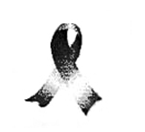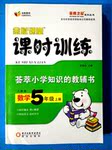题目内容
AIDS wasn’t something we talked about in my country when I was growing up. From then on, I knew that this would be a family secret. My parents were not together anymore, and my dad lived alone. For a while, he could take care of himself. But when I was 12, his condition worsened. My father’s other children lived far away, so it fell to me to look after him.
We couldn’t afford all the necessary medication for him, and because Dad was unable to work, I had no money for school supplies and often couldn’t even buy food for dinner. I would sit in class feeling completely lost, the teacher’s words muffled as I tried to figure out how I was going to manage.
I did not share my burden(负担)with anyone. I had seen how people reacted to AIDS. Kids laughed at classmates who had parents with the disease. And even adults could be cruel. When my father was moved to the hospital, the nurses would leave his food on the bedside table even though he was too weak to feed himself.
 I had known that he was going to die, but after so many years of keeping his condition a secret. I was completely unprepared when he reached his final days. Sad and hopeless. I called a woman at the nonprofit National AIDS Support. That day, she kept me on the phone for hours. I was so lucky to find someone who cared. She saved my life.
I had known that he was going to die, but after so many years of keeping his condition a secret. I was completely unprepared when he reached his final days. Sad and hopeless. I called a woman at the nonprofit National AIDS Support. That day, she kept me on the phone for hours. I was so lucky to find someone who cared. She saved my life.
I was 15 when my father died. He took his secret away with him, having never spoken about AIDS to anyone, even me. He didn’t want to call attention to AIDS. I do.
60.What does Kerrel tell us about her father?
A.He had stayed in the hospital since he fell ill.
B.He depended on the nurses in his final days.
C.He worked hard to pay for his medication.
D.He told no one about his disease.
61.What can we learn from the underlined sentence?
A.Kerrel couldn’t understand her teacher.
B.Kerrel had special difficulty in hearing.
C.Kerrel was too troubled to focus on the lesson.
D.Kerrel was too tired to hear her teacher’s words.
62.Why did Kerrel keep her father’s disease a secret?
A.She was afraid of being looked down upon.
B.She thought it was shameful to have AIDS.
C.She found no one willing to listen to her.
D.She wanted to obey her mother.
63.Why did Kerrel write the passage?
A.To tell people about the sufferings of her father.
B.To show how little people knew about AIDS.
C.To draw people’s attention to AIDS.
D.To remember her father.
60.D.
解析:
细节题。为了不被别人瞧不起,作者没有将她爸爸得艾滋病的事告诉任何人,他爸爸也没有和别人将她的病。两句话对解该题很重要:第四段首句:I didn’t share my burden with anyone.最后一段第二句:He took his secret away with him.
61.C.
解析:
对伐线句子的理解;我总是不知所措的坐在课堂上,当我费尽心思地要找出解决问题的办法的时候,老师说的话嗡嗡的响在我耳边。
62.A.
解析:
细节题。由文章第四段:Kids laughed at classmates who had parents with the disease. And even adults could be cruel. 可知答案
63.C.
解析:
主旨题。从文章最后一段:he didn’t want to call attention to AIDAS, I do.可知答案。

 小学课时作业全通练案系列答案
小学课时作业全通练案系列答案 金版课堂课时训练系列答案
金版课堂课时训练系列答案 单元全能练考卷系列答案
单元全能练考卷系列答案 新黄冈兵法密卷系列答案
新黄冈兵法密卷系列答案I was 9 years old when I found out my father was ill. It was 1994, but I can remember my mother's words as if it were yesterday: “Kerrel, I don't want you to take food from your father, because he has AIDS. Be very careful when you are around him.”
AIDS wasn't something we talked about in my country when I was growing up. From then on, I knew that this would be a family secret. My parents were not together anymore, and my dad lived alone. For a while, he could take care of himself. But when I was 12, his condition worsened. My father's other children lived far away, so it fell to me to look after him.
We couldn't afford all the necessary medication for him, and because Dad was unable to work, I had no money for school supplies and often couldn't even buy food for dinner. I would sit in class feeling completely lost, the teacher's words muffled as I tried to figure out how I was going to manage.
I did not share my burden (负担) with anyone. I had seen how people reacted to AIDS. Kids laughed at classmates who had parents with the disease. And even adults could be cold. When my father was moved to the hospital, the nurses would leave his food on the bedside table even though he was too weak to feed himself.
I had known that he was going to die, but after so many years of keeping his condition a secret, I was completely unprepared when he reached his final days. Sad and hopeless, I called a woman at the nonprofit National AIDS Support. That day, she kept me on the phone for hours. I was so lucky to find someone who cared. She saved my life.
I was 15 when my father died. He took his secret away with him, having never spoken about AIDS to anyone, even me. He didn't want to call attention to AIDS. I do.
【小题1】Which of the following statements about Kerrel’s father is true?
| A.He had stayed in the hospital since he fell ill. |
| B.He depended on the nurses in his final days. |
| C.He told no one about his disease. |
| D.He worked hard to pay for his medication. |
| A.Kerrel couldn't understand her teacher. |
| B.Kerrel had special difficulty in hearing. |
| C.Kerrel was too troubled to focus on the lesson. |
| D.Kerrel was too tired to hear her teacher's words. |
| A.She was afraid of being looked down upon. |
| B.She thought it was shameful to have AIDS. |
| C.She found no one willing to listen to her. |
| D.She wanted to obey her mother. |
| A.To tell people about the sufferings of her father. |
| B.To show how little people knew about AIDS. |
| C.To remember her father. |
| D.To draw people's attention to AIDS. |
 I did not share my burden (负担) with anyone. I had seen how people reacted
to AIDS. Kids laughed at classmates who had parents with the disease. And even
adults could be cruel. When my father was moved to the hospital, the nurses
would leave his food on the bedside table even though he was too weak to feed
himself.
I did not share my burden (负担) with anyone. I had seen how people reacted
to AIDS. Kids laughed at classmates who had parents with the disease. And even
adults could be cruel. When my father was moved to the hospital, the nurses
would leave his food on the bedside table even though he was too weak to feed
himself.